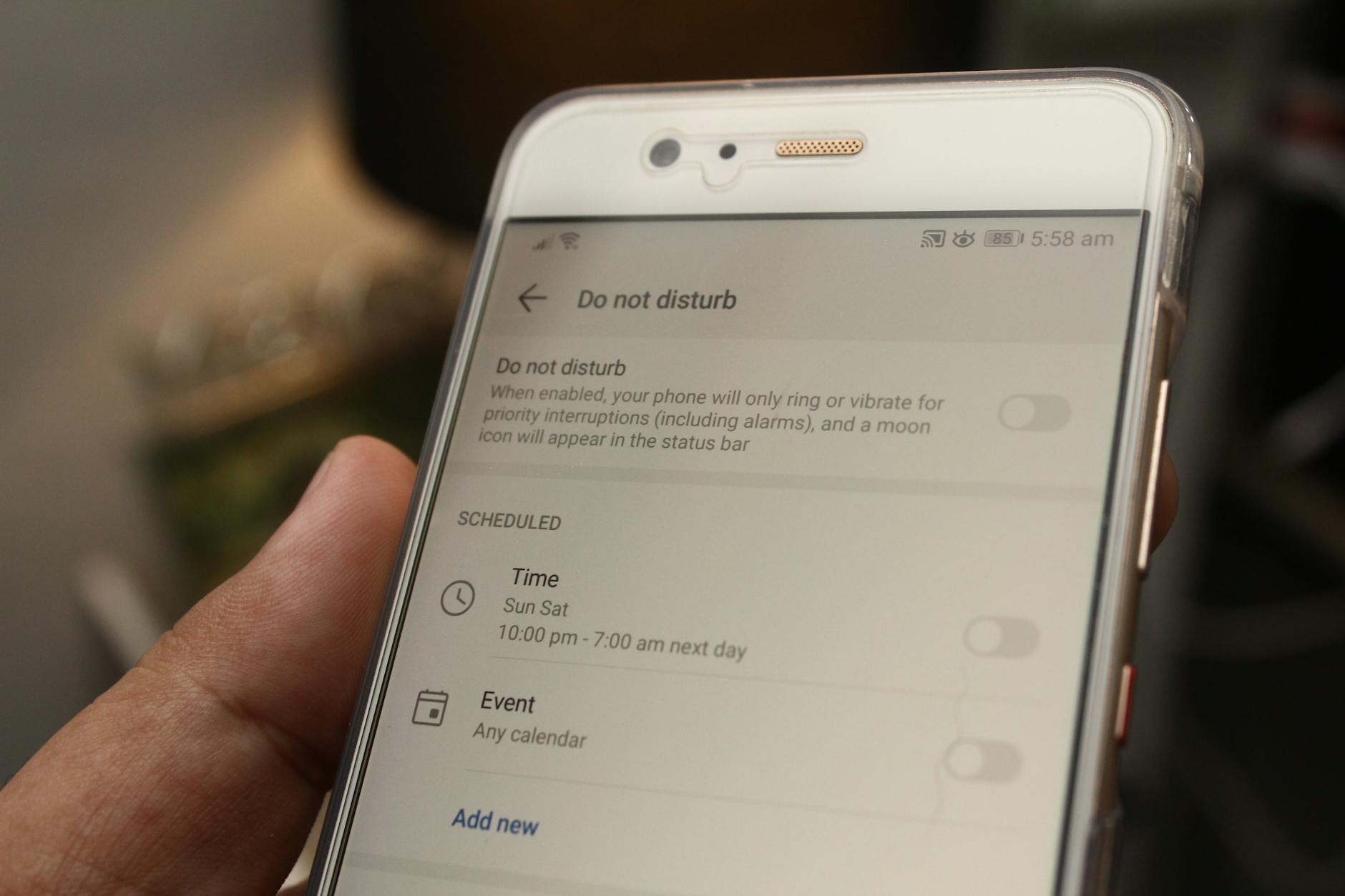Image source: Pexels
In the rapidly shifting digital frontier of 2025, the crucial question echoes louder than ever: Which phone brand has the best security system? It's no longer just about the latest specs; it's about the bedrock of trust and the assurance of your digital life's safety. This comprehensive guide is designed to empower you, demystifying the intricate security architectures of both iPhone and Android. We'll meticulously compare Apple's tightly controlled, integrated ecosystem against Google's adaptable, open-source philosophy, dissecting their core strengths and potential vulnerabilities. Prepare to explore cutting-edge security features, understand how user behavior impacts your protection, and stay ahead of the curve on emerging threats and trends. By the end, you'll have the clarity needed to make a truly informed decision for your mobile security in the year ahead.
iPhone Security: Apple's Integrated Ecosystem Approach
When considering which phone brand has the best security system?, Apple's approach stands out due to its deeply integrated ecosystem. This strategy allows for a cohesive and robust security framework that spans hardware, software, and services, offering users a high degree of protection. Apple's end-to-end control is a cornerstone of this security, ensuring that each component works in harmony to safeguard user data and privacy.
The Power of a Closed System: Control and Consistency
Apple's “walled garden” approach, characterized by its closed system, grants it significant control over the entire user experience. This control translates into consistent security policies and implementations across its devices. Unlike more open platforms, this curated environment minimizes the attack surface and allows Apple to enforce its security standards rigorously. This consistency is vital for maintaining a reliable security posture.
Hardware-Level Security: The Secure Enclave's Role
At the heart of iPhone security lies the Secure Enclave, a dedicated coprocessor built into the A-series and M-series chips. This hardware-level security feature is isolated from the main processor and iOS, providing a secure vault for highly sensitive data. It is instrumental in protecting information like Face ID and Touch ID biometric data, as well as encryption keys. The Secure Enclave ensures that even if the main operating system is compromised, this critical data remains protected.
App Store Vetting: A Gatekeeper for Your Safety
Apple's App Store operates under a stringent review process, acting as a critical gatekeeper against malicious software. Every app submitted undergoes a thorough examination to ensure it adheres to Apple's privacy guidelines and security standards. This vetting process aims to prevent malware from reaching users and to protect personal information from unauthorized access.
Timely Updates: Patching Vulnerabilities Swiftly
A crucial aspect of maintaining robust security is the ability to address emerging threats quickly. Apple is recognized for its commitment to providing timely and consistent security updates across its entire range of devices. These updates are designed to patch vulnerabilities as soon as they are discovered, ensuring that users are protected against the latest cyber threats. This proactive approach is a key differentiator when evaluating which phone brand has the best security system?
Android Security: Google's Open-Source Strategy and Its Challenges
Android's security model is a complex interplay of Google's open-source philosophy, robust platform-level protections, and the inherent challenges of a diverse hardware ecosystem. While many wonder which phone brand has the best security system?, Android's open nature offers both significant advantages and unique hurdles.
The Open-Source Advantage: Flexibility and Choice
Android's open-source foundation provides unparalleled flexibility and choice. Developers and manufacturers can customize the operating system, leading to a wide array of devices with diverse hardware capabilities and user interfaces. This openness fosters innovation and allows for specialized security features tailored to specific needs. Users benefit from a broader selection of devices at various price points, each potentially offering unique security configurations.
Google Play Protect: Safeguarding the App Ecosystem
Google Play Protect acts as a crucial line of defense within the Android ecosystem. It continuously scans apps on Google Play and on the device itself for malware, intrusive behavior, and other security threats. This automated system helps identify and remove harmful applications, striving to maintain a safer environment for users.
Hardware Security Modules: Titan M and Beyond
For enhanced security, Google has integrated hardware security modules like the Titan M chip, particularly in its Pixel devices. This dedicated security processor handles sensitive operations, such as cryptographic key management and secure boot verification, offloading them from the main processor. This approach aims to protect user data even in the event of a compromised software environment.
The Fragmentation Factor: Update Delays and Vulnerabilities
The very diversity that makes Android appealing also presents a significant security challenge: fragmentation. The timely delivery of security updates across the vast Android landscape is inconsistent. Different manufacturers and carriers must adapt and deploy these updates, leading to delays that can leave devices vulnerable to known exploits. This raises the question of which phone brand has the best security system? as some manufacturers are more proactive in rolling out patches than others.
| Manufacturer | Update Speed (General) | Security Patch Cadence (General) |
|---|---|---|
| Google (Pixel) | Very Fast | Monthly |
| Samsung | Fast | Monthly/Quarterly |
| OnePlus | Moderate | Monthly/Quarterly |
| Other Brands | Variable | Variable/Infrequent |
The reliance on multiple parties for updates means that a vulnerability discovered today might take weeks or months to be patched on many Android devices, a stark contrast to more controlled ecosystems.
Head-to-Head: Key Security Differences and User Behavior in 2025
As we move further into 2025, the debate around which phone brand has the best security system? intensifies, driven by evolving threats and distinct platform approaches. While both major mobile ecosystems strive for user protection, their methodologies and the resultant user behaviors present notable differences. This section delves into these distinctions, offering a comparative analysis of their security frameworks and how users interact with them.
Encryption Standards and Biometric Authentication
When considering which phone brand has the best security system?, encryption and biometrics are paramount. Apple's iOS generally employs robust end-to-end encryption for iMessage and FaceTime, with Face ID being a highly regarded biometric solution. Android, while offering strong encryption across its platform, has a more fragmented approach due to diverse hardware manufacturers. Biometric options on Android vary, with advancements in under-display fingerprint sensors and facial recognition.
| Feature | Apple (iOS) | Android (Various Manufacturers) |
|---|---|---|
| Primary Encryption | End-to-end for core communication | Platform-level, varies by manufacturer |
| Biometric Authentication | Face ID (highly secure) | Fingerprint (various types), Facial Recognition (varies) |
| Data Protection | Strong, with hardware-level security enclaves | Robust, but implementation can differ |
| Key Management | Secure Enclave for cryptographic keys | Varies, often hardware-backed keystores |
App Vetting Rigor: A Comparative Look
The rigor of app vetting significantly impacts user safety. Apple's App Store is known for its stringent review process, aiming to filter out malicious applications before they reach users. In contrast, Google's Play Store, while also having review processes, is often perceived as more open, leading to a larger volume of apps but potentially a higher risk of encountering malware. This difference directly influences the answer to which phone brand has the best security system? from an app ecosystem perspective.
User Demographics and Security Awareness
User demographics play a crucial role in platform security adoption and awareness. Older demographics might gravitate towards platforms perceived as simpler and more secure, such as iOS. Younger, tech-savvier users might be more inclined towards Android's customization, potentially with a higher understanding of security risks. Income levels can also correlate with platform choice, with premium devices often associated with enhanced security features. The effectiveness of security measures is thus intertwined with user understanding and platform preference.
Navigating Threats: Phishing and Malware on Both Platforms
Phishing and malware remain persistent threats. Both iOS and Android are targets, but their architectural differences influence susceptibility. iOS's closed ecosystem and stricter app permissions can offer a degree of protection against certain types of malware. Android's open nature, while offering flexibility, can make it more vulnerable if users download apps from untrusted sources or fall victim to sophisticated phishing attempts. Ultimately, user vigilance remains the most critical defense against these pervasive threats, regardless of which phone brand has the best security system?
Future of Mobile Security: Trends and Best Practices for 2025
As mobile devices become more integrated into our daily lives, the landscape of digital security is rapidly evolving. By 2025, advancements in artificial intelligence, shifting privacy regulations, and new user habits will define how we protect our most personal data. Understanding these trends is crucial for staying ahead of emerging threats.
AI in Threat Detection: The Next Frontier
The future of mobile defense lies in proactive, intelligent systems. Artificial intelligence (AI) and machine learning (ML) are moving beyond traditional signature-based detection. Instead of just looking for known viruses, AI-powered security on devices will analyze behavior in real-time. It can identify anomalies in app activity, network traffic, or system requests, allowing it to detect and neutralize zero-day threats and sophisticated malware before they can cause harm. This on-device processing ensures faster response times and enhanced privacy.
Evolving Privacy Controls and Regulations
Following the precedent set by regulations like GDPR, governments worldwide are enacting stricter data privacy laws. In response, mobile operating systems are providing users with more transparent and granular control. Expect to see enhanced privacy dashboards that clearly show which apps are accessing your camera, microphone, and location. Features like App Tracking Transparency will become standard, forcing applications to explicitly request permission before tracking your activity across other companies' apps and websites.
User Best Practices: Fortifying Your Device
While platforms provide the tools, user vigilance remains the first line of defense. In 2025, securing your device will require adopting modern security habits.
A secure platform is only as strong as the practices of its user. The following habits are essential for digital hygiene:
- Adopt Passkeys: Move away from vulnerable passwords and toward phishing-resistant passkey technology for logins.
- Enable Automatic Updates: Ensure your operating system and applications are always patched against the latest vulnerabilities.
- Perform Permission Audits: Regularly review which apps have access to your data and revoke unnecessary permissions.
Choosing the Right Platform for Your Security Needs
When asking which phone brand has the best security system?, the answer depends on individual priorities. Both iOS and Android offer robust security, but their philosophies differ. Apple’s closed ecosystem provides a highly controlled and consistent environment, while Android’s open nature offers greater flexibility at the cost of potential fragmentation.
| Feature | Apple iOS (iPhone) | Google Android |
|---|---|---|
| App Ecosystem | Closed (“walled garden”); apps are strictly vetted via the App Store. | Open; allows app installation from multiple sources (sideloading). |
| OS Updates | Centralized and deployed simultaneously to all eligible devices. | Fragmented; updates depend on the device manufacturer and carrier. |
| Customization | Limited customization, prioritizing a uniform and secure user experience. | Highly customizable, offering more user control but a larger attack surface. |
| Default Privacy | Emphasizes strong, on-by-default privacy settings and user consent. | Offers powerful controls, but requires more user configuration for maximum privacy. |
FAQ (Frequently Asked Questions)
Q1: Is iOS or Android more secure overall in 2025?
A1: In 2025, both iOS and Android offer robust security, but they achieve it differently. iOS is generally considered more secure out-of-the-box due to its tightly controlled ecosystem, consistent updates, and stringent app vetting. Android offers more flexibility and customization, with strong security features, but its security can vary depending on the manufacturer and the timeliness of updates. For most users prioritizing ease of use and consistent protection, iOS often has an edge.
Q2: How does hardware security impact mobile device security?
A2: Hardware security, such as Apple's Secure Enclave or Google's Titan M chip, plays a critical role by providing dedicated processors for sensitive operations like biometric data processing and encryption key management. This isolation from the main operating system ensures that critical security data remains protected even if the software is compromised, significantly enhancing overall device security.
Q3: What is the biggest security threat to smartphone users in 2025?
A3: The biggest security threats in 2025 remain phishing attacks, malware distributed through malicious apps (especially from unofficial sources on Android), and social engineering tactics. While platform security is strong, user vigilance is paramount. Falling for phishing scams or downloading untrusted applications are common ways users compromise their own devices.
Q4: Can I make my Android phone as secure as an iPhone?
A4: You can significantly enhance the security of your Android phone to rival an iPhone by following best practices. This includes always installing updates promptly, downloading apps only from the Google Play Store, enabling two-factor authentication, regularly reviewing app permissions, and using strong, unique passwords or passkeys. Choosing a Pixel device or a manufacturer known for timely updates also helps.
Conclusion
In 2025, the quest to determine which phone brand has the best security system reveals a landscape defined by two powerful, yet distinct, philosophies. Apple’s iOS continues to offer a fortress-like experience, built on a foundation of integrated hardware and software control that ensures rapid and consistent security updates for all users. On the other side, Android has made remarkable strides, transforming its open ecosystem into a resilient and flexible security environment. With continuous improvements and granular controls, it empowers users who value customization without significant compromise. The debate is no longer about which platform is inherently “safer,” but which security model aligns best with your personal needs and digital habits. The ultimate power, however, lies with you, the user. True mobile security transcends the brand name on your device. To fortify your digital life, you must take an active role. We encourage you to meticulously evaluate your personal security requirements and commit to best practices: prioritize timely software updates, create strong and unique passwords, remain vigilant about app permissions, and take the time to understand the unique security features of your chosen platform. Staying informed about emerging threats is not just advisable; it's essential. By adopting these proactive measures, you become the most crucial element in your own defense. Ready to secure your digital life? Whether you're leaning towards the integrated strength of iOS or the adaptable power of Android, the next step is to make informed choices. Explore detailed security settings on your current device, research the latest security features from both Apple and Google, and commit to adopting the user best practices outlined above. For the most up-to-date information and personalized advice on mobile security, visit our comprehensive security guides or consult with a cybersecurity professional. Your secure mobile future starts now.









